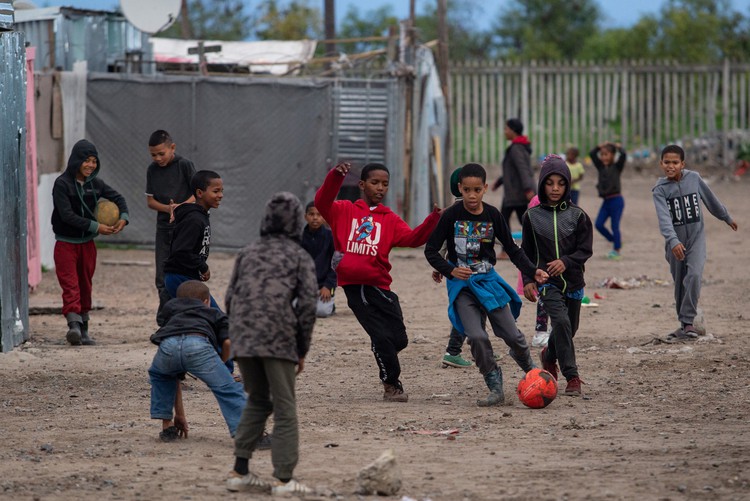
A good vaccine programme and a strong mother-to-child HIV transmission programme are reducing serious diseases in Cape Town’s children according to UCT professor. Archive photo: Ashraf Hendricks
11 July 2019
The number of cases of diarrhoea and severe acute malnutrition in young children, reported at clinics in Cape Town during the most recent surge season, was the lowest in five years.
The City of Cape Town has finalised the data for the most recent “Surge Season”. The data tracks cases of diarrhea, pneumonia and severe acute malnutrition in young children.
The period between November and May coincides with an increase in diarrhea and pneumonia cases. These cases can have dire consequences for young patients, if not diagnosed timeously and treated effectively, the City said in a statement.
The Surge Season Team was created to prevent poor outcomes and includes City Health Primary Care and Environmental Health.
Data for the 2018/19 surge season indicate a 13% drop in the number of diarrhoea cases reported compared to 2017/18. This is the lowest compared to the previous five years, with an 18% drop in the number of cases that required hospital admission.
Reported pneumonia cases have risen slightly to 12,045, but hospital admissions have remained stagnant. There was a 5% decline in severe acute malnutrition cases reported.
Prof Heather Zar, Chair of the Department of Paediatrics and Child Health at the University of Cape Town, told GroundUp: “Children with malnutrition are at higher risk of developing diarrhoea or pneumonia and also of developing severe disease. More than half of children who die from pneumonia or diarrhoea, also have malnutrition.”
She ascribed the decrease to a “good rotavirus vaccine program which is highly effective to prevent diarrhoea” as well as “fewer HIV-infected children who have a higher risk of developing diarrhoea and severe illness”. She said the decline in paediatric HIV infections was due to the strong mother-to-child transmission prevention programme and earlier access to treatment which prevented severe illness and the need for hospitalisation.
But she said that an effective vaccine is still needed to prevent a major cause of pneumonia, respiratory syncytial virus (RSV). “Currently the first trial which vaccinated pregnant women to protect their infants has just been completed and the results look promising. Pneumonia is also often associated with tuberculosis (TB) and Cape Town has one of the highest TB rates in the world,” Zar said.
She also said that children in the city still have lots of exposure to tobacco smoke, indoor air pollution, and crowded living conditions. There is also a lack of breastfeeding. All this predisposes children to pneumonia.
“We’re seeing encouraging reductions in mortality of children under five years and some infectious diseases. We still have more work to do to reduce pneumonia especially, which is still very common and is still the major single cause of death in children outside the neonatal period,” she said.
“We are also now beginning to understand that pneumonia early in life may lead to long term damage to the lungs and so impair health for life,” Zar said.